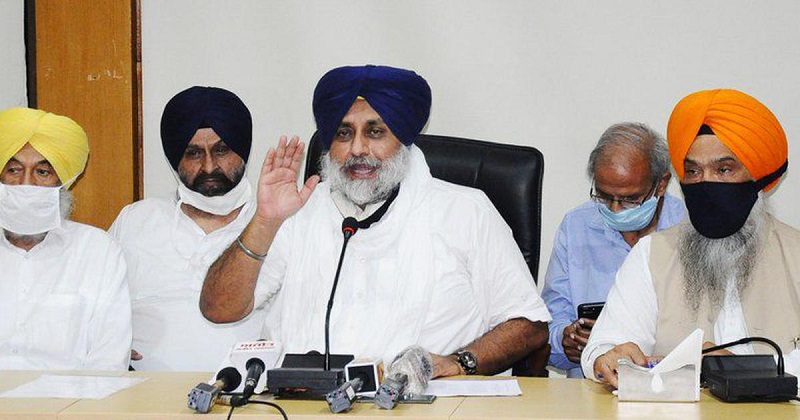While there have been widespread protests since September 25 against the Farm bills passed recently, the states of Maharashtra and Punjab are showing specific reaction or rather response to the Farm bills. Maharashtra government has been under pressures from many farmers organizations to reframe the APMC (Agricultural Produce Marketing Committees) Act. These state-level organizations have been pressurizing the Maharashtra government so that they remain relevant in case they have to compete in the market. There are different opinions in the different farmers’ organizations in the state which is why they have asked the state government to proceed carefully in this issue. Many farmers’ organizations in the state have urged the government to make the MSP mandatory. A state official has stated that a group of ministers is considering bringing changes to the APMC to retain the trust of the farmers. Many such organizations believe that the APMC act can give better benefits and security to the farmers in terms of what they get for their produce in the market. As per various farmers’ unions, around 55-60% of farmers generally do not get the benefits of the MSP, which can get worse under the new Farm Bills. The majority of farmers in Maharashtra (around 78%) have land areas not more than two hectares. Such farmers are unlikely to explore distant markets and will sell their produce under the APMC Act. Hence, many organizations and unions suggest making the MSP mandatory. With an annual turnover of around Rs 50000 crore over a network of 306 APMCs, the state’s agricultural market is mostly dominated by political leaders from INC and NCP. Hence, exposing the farmers to corporatization will make the leaders lose their trust and their political capital in the state. Therefore, it is highly possible that the farmers’ organizations in the state would be able to drive their point into action.
While in Maharashtra, the farmer organizations are making vocal demands, the situation in Punjab is spearheaded by the Shiromani Akali Dal led by Sukhbir Badal. SAD has recently stated that a high power committee would be set up which would coordinate agricultural policy actions with other like-minded organizations and Political parties across the country. Sukhbir Singh Badal stated that this committee is needed to ensure that the Federal structure is truly maintained in the country.
While SAD is taking the fight through official power structures, the Farmers organizations in Punjab have given the movement a historical and emotional hue. In Rialkot, Punjab, Farmers are using an old song to unite the people against the Farm bills. They are using the song- Pagdi Sambhal Jatta to arouse strong fervour against the Farm Bills. This song was written by Banke Dyal and was first sung by Chacha Ajit Singh in a rally at Lyalpur way back in 1907. Chacha Ajit Singh, uncle of the revolutionary Shaheed Bhagat Singh, and a revolutionary himself, was associated with Arya samaj movement, with Subhash Bose (1939 in Italy) and Ghadar party. He had organized the 1907 rally along with his brother Kishan Singh (father of Bhagat Singh) and other people like Sufi Amba Prasad and Ghasita Ram. Coincidentally in that rally the people were protesting against the Bari Doab Act and Colonisation Act of British Raj just like present day movements and protests are directed against the Farm bills.
While farmers’ organizations based in Maharashtra have taken the fight in terms of MSP, and reforms in the APMC Act, the movement in Punjab is being guided by the SAD on the moral ground of Punjab being historically the substantial provider of Food-grains. Sukhbir asserted that India has been a prominent country of rich regional cultures, linguistic diversity, and religious multiplicities which beg the need for a federal approach to the problem related to Farm Bills. He also stated that the SAD is known for the fights against Unitarian tendencies in India and that it can hence guide this fight towards a cooperative federalism in matters related to the agricultural market. One of the main demands of the core committee of SAD is to enforce the procurement of farm produce at MSPs.
The farmers’ organizations in Maharashtra and other parts of India and the SAD in Punjab are in a way standing between the security of farmers’ future and the total decimation and obliteration of India’s food security.





